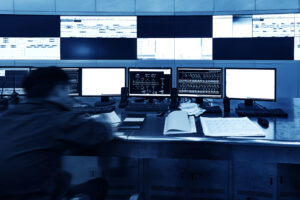Are you as easily distracted as I am? I used to be more focused and single minded, but it is now difficult to avoid looking at my phone every few minutes. There might be some important new meme on Facebook that I have to see or some video on YouTube that might interest me. How many times a day do you look at something of little or no value that distracts you from a task?
What policies does your company have about the use of personal electronic devices? I suspect they are not supposed to be used while driving, and your company might ban or limit their use elsewhere on the job. We have been in many control rooms since 2008. It is apparentto me that people use them often, even in control rooms where their use is prohibited or limited.
Do you think you are excellent at multitasking, at doing two or three tasks simultaneously? You are not. What we actually do is stop one task and begin another. Each of the tasks probably has different goals and we might have to apply different rules to accomplish the different tasks. Every time we switch, there is a time cost and a chance we might make a mistake when we switch back and forth between tasks.
A controller received an alarm from a tank mixing valve about 0500 and should have called a field operator to check it. He did not correctly analyze the alarm and just waited until the field operator arrived in a couple of hours. Later he told me he was distracted by an ongoing meter proving problem on another pipeline system. He was not so good at multitasking in the middle of the night. There was a spill from the mixing valve. As I read a few years ago, “multitasking makes us stupid.” None of us are stupid, but we sometimes do things that are stupid and that lead to errors, regrets, and consequences. How many sources of distractions do you have at work? Phone or radio, someone talking or walking nearby, a sounding alarm, music, television, “ping” when a new message is received, Internet surfing or searching, necessary and unnecessary conversations, and the list can go on and on and on. Anything that takes our attention away from the task at hand is a distraction.
What can we do to manage or avoid distractions? It is ultimately up to the individual. Yes, I know organizations may have policies that forbid the use of devices while driving or while at the console. But it is so tempting to look at that device when there is “nothing” going on at certain times. We get bored easily and seek entertainment.
I do not think it does much good to blame a tendency to get distracted on technology and its addictive effects. While one can take steps by removing apps, stopping notifications, putting our devices aside, it might be better to consider other practical steps one can take:
- In the book Indistractable by Nir Eyal, the author suggests identifying the internal triggers that lead to distractions and dealing with those emotions.
- I suggest identifying the external triggers in our environment and removing those distractions. Noise and clutter are two triggers that come to mind.
- Build a structure into the shift or the workday hour by hour and set a goal to accomplish the important tasks each hour before doing other tasks. Do one task at a time and do not switch from task to task.
THE FILTHY 15 EDUCATIONAL PROGRAM | Charles Alday © 2020 Please Distribute to Others.




